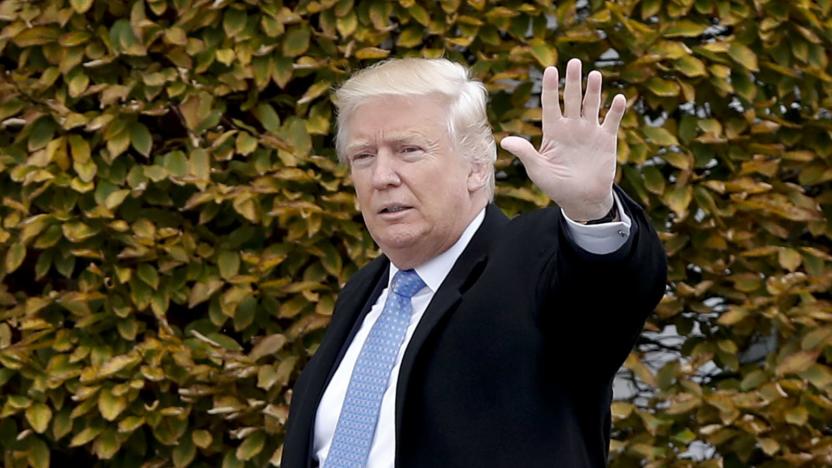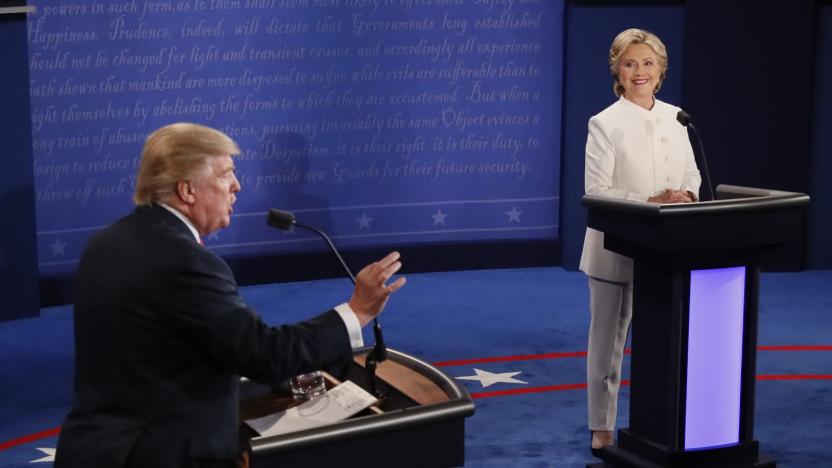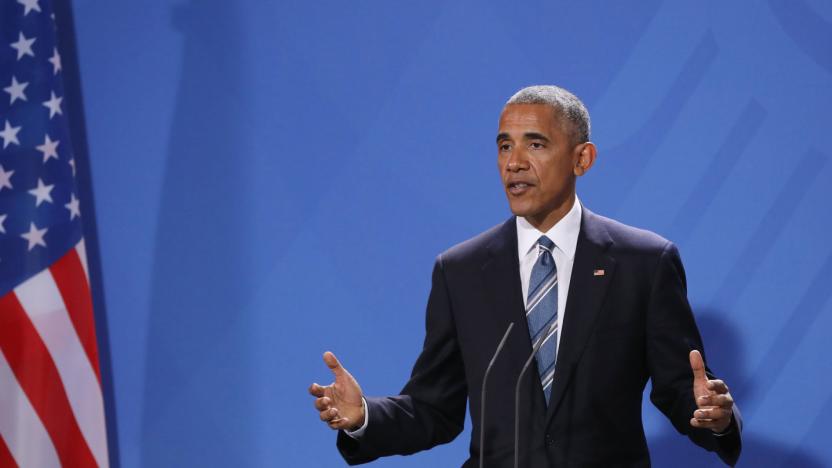TL16UGH
Latest

The House Science Committee is retweeting bad science
The House Committee on Science, Space and Technology was roundly criticized for retweeting an opinion-laced, misleading Breitbart News story on climate change. Titled "Global temperatures plunge. Icy silence from climate alarmists," it noted that global temperatures were down a record amount, seemingly defying recent trends of rapidly rising temperatures. However, scientists criticized the article (and its source, The Daily Mail) as being inaccurate and misleading, which led Bernie Sanders to reply, "Where'd you get your PhD? Trump University?"

US lead on AI will shrink without more funding and education
Over a month ago, the White House released a report exploring AI's promises and challenges. Today, climate change denier and Senator Ted Cruz, head of the Senate's Space, Science and Competitiveness subcommittee, held a public hearing to follow up on the subject. He and members of the Senate's greater Commerce, Science and Transportation committee petitioned four prominent experts in the field to give a status update on artificial intelligence. Their message was clear: AI has a lot of potential to boost American production, but unless we educate far more experts, US research will be overtaken by China, India and other nations that are increasingly investing in the field.

The Internet Archive doesn't feel safe in Trump's America
The Internet Archive collects the history of the internet, one webpage at a time, in order to power services like the Wayback Machine, the free e-book site Open Library and the Political TV Ad Archive. It's a non-profit based in the United States, but today, staffers announced plans to establish a copy of the Internet Archive's digital collections in Canada. The decision is fueled by concerns over President-elect Donald Trump's statements about the First Amendment and net neutrality.

The US tech industry will suffer if Trump tightens immigration laws
As Nov. 8th came to a close, and it became clear that America had elected Donald Trump as its next president, a familiar feeling crept over me. It was a deep sense of anxiety that arises every year or so as I begin preparing the documents I need to renew my work visa. I never know for sure if I'll still be in the country next year, but I've never felt quite so unsure about whether I would be able to continue working here.

Trump's new tech adviser wants to gut the FCC
On Monday, President-elect Trump named two advisers to his tech policy transition team. One of those experts, director of the Public Utility Research Center at the University of Florida Mark Jamison, wrote a blog entry last month explaining his position on the FCC -- namely, that the country could do without it. In his opinion, the nation should almost completely dissolve the antiquated agency and farm out many of its regulatory duties to the FTC and local officials because the telecom industry is competitive enough to require far less oversight.

Trump subs in a YouTube address for a press conference
President-elect Donald Trump has made his first address regarding the state of his transition to President of the United States, via a YouTube video. While he presumably reads directly from a teleprompter, Trump lays out his plans for cyber security, among others: "I will ask the Department of Defense as well as the chairman of the Joint Chiefs of Staff to develop a comprehensive plan to protect America's vital infrastructure from cyberattacks as well as all other form of attacks." No other information about the plan was given beyond that.

Clickbait, fake news and the power of feeling
Fake news has dominated post-election headlines, and important questions have been asked: Would Hillary have won had almost a million people not read that Pope Francis had endorsed Trump? (Probably not). Did Facebook take enough action to prevent fake news proliferating on its network? (Definitely not). But few have asked why these articles were so popular in the first place. Why were so many people duped into clicking these stories? Earlier this month, BuzzFeed News' Craig Silverman analyzed engagement (likes, comments, shares, etc.) across Facebook and identified the most popular real and fake articles across three distinct periods: February to April, May to July and August to Election Day. With this analysis, Silverman was able to show that the 20 most popular fake posts were "engaged with" (Facebook's term for likes, shares and so on) 8.71 million times in the lead up to the election, compared to just 2.97 million times in February to April. Mainstream news showed the opposite pattern: Starting at 12.4 million, and falling to 7.37 million in the final period -- 1.34 million less than the fake news. The overall number of engagements is fairly steady, too, suggesting that, at least to some extent, Facebook users were sharing fake news instead of real stories.

Twitter bots were rampant during the US election
If you believe one study, it's not just fake news that polluted the internet during the US election... it's bogus accounts, too. Researchers at the international Project on Computational Propaganda report that the use of politically minded Twitter bots reached an "all-time high" during the 2016 presidential campaign. Out of 18.9 million studied tweets using political hashtags, 17.9 percent of them came from "highly automated" accounts that post 50 or more tweets per day. That ratio only grew higher during the debates, peaking at over 27 percent during the final Clinton/Trump showdown -- and it conveniently tanked after the election was over.

Obama: We have to get serious about facts
After a meeting with German Chancellor Angela Merkel, President Obama tackled the topic of fake news following a number of reports detailing Facebook activity during the 2016 election. He explained at a time when so many people are getting their news via sound bites on social media, we have to get serious about facts.

Trump advisor takes issue with Silicon Valley's Asian CEOs
Before President-elect Donald Trump's chief strategist Stephen Bannon was headed to the White House, he was running "platform for the alt-right" website Breitbart News. Aside from overseeing the publication of anti-Semitic and misogynistic articles, Bannon also hosted the site's Sirius XM radio show. A segment from November 5th, 2015 that featured an interview with Trump has resurfaced thanks to The Washington Post. Mostly, it covers stuff like campaign financing, but at around the 16:23 mark, talk goes to H-1B visas for skilled workers to help keep them in the country after graduating from college.







